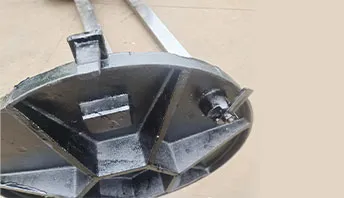
Noy . 17, 2024 13:31 Back to list
steam boiler price
Understanding Steam Boiler Prices A Comprehensive Guide
Steam boilers are essential components in various industries, including manufacturing, food processing, and power generation. They convert water into steam, which can be used for heating, powering machinery, or even generating electricity. Given their critical role, many companies find themselves asking, What does a steam boiler cost? The price of a steam boiler can vary greatly depending on several factors, including its type, capacity, efficiency, and additional features.
Types of Steam Boilers
There are several types of steam boilers, and each has its price range. The two primary categories are fire-tube boilers and water-tube boilers. Fire-tube boilers, which are commonly used for small to medium-sized applications, tend to be less expensive, with prices typically ranging from $3,000 to $100,000. They work by passing hot gases through tubes that are surrounded by water, creating steam as the water absorbs heat.
On the other hand, water-tube boilers, used for higher capacities or industrial applications, are generally more complex and, as such, come with a higher price tag. Their prices can start around $20,000 and go up to $500,000 or more. Water-tube boilers are designed to handle higher pressures and are more efficient, which justifies their higher cost.
Capacity and Efficiency
The capacity of a steam boiler is one of the most significant factors influencing its price. Measured in horsepower (HP), smaller residential boilers might offer around 15 HP, while larger industrial models can exceed 1,000 HP. As the capacity increases, so does the price. Additionally, efficiency ratings play a critical role in the overall cost. High-efficiency boilers are more expensive upfront but can lead to significant savings in fuel costs over time. A boiler with an efficiency rating of 90% or higher may be more costly initially but could yield lower operational costs in the long run.
steam boiler price

Additional Features
The inclusion of advanced features can also affect the price. For example, steam boilers equipped with controls for monitoring and managing emissions, automatic blowdown systems, or integrated heat recovery systems will typically be priced higher. Furthermore, factors such as the materials used in the construction of the boiler (e.g., stainless steel versus carbon steel), the type of burner, and whether it requires additional safety features also contribute to the overall cost.
Market Trends and Considerations
The market for steam boilers has seen fluctuations in prices due to varying demand and supply chain factors. Regulatory changes regarding emissions and energy efficiency can also influence boiler prices. Manufacturers are continually innovating, leading to improvements in technology that increase efficiency and reduce emissions. Therefore, staying informed about the latest developments and trends in the boiler market is essential for organizations looking to make an investment.
Conclusion
When considering the price of a steam boiler, it's crucial to evaluate not only the initial purchase price but also the long-term operational costs, efficiency, and capacity needs. Businesses must assess their specific requirements and consult with suppliers or industry experts to find the best fit. By taking a comprehensive approach, organizations can ensure they invest wisely in steam boiler technology, optimizing both performance and cost-effectiveness. Investing in a steam boiler is a decision that can significantly impact operational efficiency and should be made with careful consideration and planning.
-
Efficient Biomass Fired Hot Water Boiler | AI Heating Solution
NewsAug.01,2025
-
High-Efficiency Gas Thermal Oil Boilers | HPT Models
NewsJul.31,2025
-
Oil Fired Hot Water Boilers Sale - High Efficiency & Affordable
NewsJul.31,2025
-
High-Efficiency Commercial Oil Fired Steam Boiler for Industry
NewsJul.30,2025
-
High-Efficiency Biomass Fired Thermal Oil Boiler Solutions
NewsJul.30,2025
-
High Efficiency Gas Fired Thermal Oil Boiler for Industrial Heating
NewsJul.29,2025
Related PRODUCTS






















